Discover Throughline
Throughline

Throughline
Author: NPR
Subscribed: 68,420Played: 3,261,777Subscribe
Share
© Copyright 2019-2021 NPR - For Personal Use Only
Description
Throughline is a time machine. Each episode, we travel beyond the headlines to answer the question, "How did we get here?" We use sound and stories to bring history to life and put you into the middle of it. From ancient civilizations to forgotten figures, we take you directly to the moments that shaped our world. Throughline is hosted by Peabody Award-winning journalists Rund Abdelfatah and Ramtin Arablouei.
Subscribe to Throughline+. You'll be supporting the history-reframing, perspective-shifting, time-warping stories you can't get enough of - and you'll unlock access bonus episodes and sponsor-free listening. Learn more at plus.npr.org/throughline
Subscribe to Throughline+. You'll be supporting the history-reframing, perspective-shifting, time-warping stories you can't get enough of - and you'll unlock access bonus episodes and sponsor-free listening. Learn more at plus.npr.org/throughline
393 Episodes
Reverse
Octavia Butler gave us a new kind of science fiction: not only as one of the first writers to use history to talk about the future, and not only as one of the first Black women to do it, but by sending, along with her warnings, a message of hope, survival, persistence, and repair.To access bonus episodes and listen to Throughline sponsor-free, subscribe to Throughline+ via Apple Podcasts or at plus.npr.org/throughline.Learn more about sponsor message choices: podcastchoices.com/adchoicesNPR Privacy Policy
As a kid, Ramtin fell in love with Frank Herbert's 1965 epic sci-fi novel, Dune. Today, he joins NPR's Books We’ve Loved crew, Andrew Limbong and B.A. Parker, to make the case for why he thinks you'll love it too.To access bonus episodes and listen to Throughline sponsor-free, subscribe to Throughline+ via Apple Podcasts or at plus.npr.org/throughline.Learn more about sponsor message choices: podcastchoices.com/adchoicesNPR Privacy Policy
Christmas wasn't always a national shopping spree — or even a day off work. But when Charles Dickens published A Christmas Carol in 19th-century London, the holiday went viral.Guests:Leon Litvack, professor of Victorian Studies at Queen's University in Belfast and editor of the Charles Dickens Letters project.Lucinda Dickens Hawksley, author and historian of Victorian England.To access bonus episodes and listen to Throughline sponsor-free, subscribe to Throughline+ via Apple Podcasts or at plus.npr.org/throughline.Learn more about sponsor message choices: podcastchoices.com/adchoicesNPR Privacy Policy
What if the real story of human history is a story itself? To kick off our winter book club, we talk with bestselling author Tamim Ansary about his book, "The Invention of Yesterday: A 50,000-Year History Of Human Culture, Conflict And Connection," about why the future of our species might depend on our ability to arrive at a story we all share. This episode originally ran in 2022.To access bonus episodes and listen to Throughline sponsor-free, subscribe to Throughline+ via Apple Podcasts or at plus.npr.org/throughline.Learn more about sponsor message choices: podcastchoices.com/adchoicesNPR Privacy Policy
Rund takes Ramtin on a tour of the enduring world of Jane Austen's Pride and Prejudice... and our two hosts make a bet.Guests:John Mullan, professor of English Literature at University College London and author of What Matters in Jane AustenDevoney Looser, professor of English at Arizona State University and author of Wild for Austen: A Rebellious, Subversive and Untamed JaneLizzie Dunford, director of Jane Austen's HouseTo access bonus episodes and listen to Throughline sponsor-free, subscribe to Throughline+ via Apple Podcasts or at plus.npr.org/throughline.Learn more about sponsor message choices: podcastchoices.com/adchoicesNPR Privacy Policy
What's better than holiday hot chocolate? If just thinking about it makes you feel all warm and fuzzy, well – that’s by design. Chocolate's big history sweeps across the globe, and today we’re going on that journey: from the pre–Columbus Americas, to an early 20th century reporter’s hunch about what cocoa production really takes, to a 21st century medical student’s story about his childhood on a farm that produces those holiday treats.Guests:Carla Martin, lecturer in African and African American Studies at Harvard University and President of the Board of the Institute for Cacao and Chocolate ResearchCatherine Higgs, professor of history at the University of British Columbia in CanadaShadrack Frimpong, founder of Cocoa360We’ve got a favor to ask: We know there are a lot of great NPR shows out there.. but we all know who's the best. NPR is celebrating the best podcasts of the year, and YOU get to crown the winner of the People’s Choice Award. Vote for Throughline at npr.org/peopleschoice. May the best pod win!To access bonus episodes and listen to Throughline sponsor-free, subscribe to Throughline+ via Apple Podcasts or at plus.npr.org/throughline.Learn more about sponsor message choices: podcastchoices.com/adchoicesNPR Privacy Policy
On today's show, a Thanksgiving story you might never have heard -- not about Pilgrims or Native people, but instead about a woman who, as civil war loomed, pushed for a shared national holiday she thought would keep the United States together. This episode originally ran in 2024.We’ve got a favor to ask: We know there are a lot of great NPR shows out there.. but we all know who's the best. NPR is celebrating the best podcasts of the year, and YOU get to crown the winner of the People’s Choice Award. Vote for Throughline at npr.org/peopleschoice. May the best pod win!To access bonus episodes and listen to Throughline sponsor-free, subscribe to Throughline+ via Apple Podcasts or at plus.npr.org/throughline.Learn more about sponsor message choices: podcastchoices.com/adchoicesNPR Privacy Policy
Rund Abdelfatah and Cristina Kim try to unravel the mystery of a Soviet scientist who was helping to spread the word about nuclear winter theory—until he disappeared. This is a peek at the kind of exclusive bonus content Throughline+ supporters get every month. Want more like this? Sign up via Apple Podcasts or at plus.npr.org/throughline. And thank you!Learn more about sponsor message choices: podcastchoices.com/adchoicesNPR Privacy Policy
How quickly can a government fall? Chile was once one of Latin America's oldest democracies, but that all changed in a matter of hours after a military coup on September 11, 1973. Some supported the coup; many did not. But for the next 17 years, all Chileans lived in the grip of brutal authoritarian rule. Today on the show, the story of a democracy’s collapse and rebirth, told through the eyes of four people who lived through it.We’ve got a favor to ask: We know there are a lot of great NPR shows out there.. but we all know who's the best. NPR is celebrating the best podcasts of the year, and YOU get to crown the winner of the People’s Choice Award. Vote for Throughline at npr.org/peopleschoice. May the best pod win!To access bonus episodes and listen to Throughline sponsor-free, subscribe to Throughline+ via Apple Podcasts or at plus.npr.org/throughline.Learn more about sponsor message choices: podcastchoices.com/adchoicesNPR Privacy Policy
On the surface, the story of Sudan’s war is about two generals vying for power. But it’s also about a vast web of international interests involving the U.S., China, Russia, and the UAE. Today on the show, the story of how things in Sudan got to this point, and the effects of the conflict around the world. This episode originally ran in 2024 and has been updated.To access bonus episodes and listen to Throughline sponsor-free, subscribe to Throughline+ via Apple Podcasts or at plus.npr.org/throughline.Learn more about sponsor message choices: podcastchoices.com/adchoicesNPR Privacy Policy
Late last month, President Trump announced that the United States would be restarting nuclear weapons tests after a break of over 30 years. We’ve since learned that they won’t be the explosive kind of tests, but this sent us down a rabbit hole — where we found a story about dinosaurs, Carl Sagan, and nuclear war. Because there was a moment in the not-so-distant past when we learned what drove the dinosaurs extinct... and that discovery, made during the Cold War, may have helped save humans from the same fate. This episode originally published in March 2025.Guests:David Sepkoski, Thomas M. Siebel Chair in History of Science at the University of Illinois and author of Catastrophic Thinking: Extinction and the Value of Diversity. Owen Brian Toon, professor of atmospheric and oceanic sciences at the University of Colorado Boulder.Alec Nevala-Lee, novelist, critic, and biographer and author of the forthcoming book Collisions: A Physicist's Journey from Hiroshima to the Death of the Dinosaurs. Ann Druyan, co-writer and co-creator of the television series Cosmos: A Personal Voyage. Andrew Revkin, science and environmental journalist.To access bonus episodes and listen to Throughline sponsor-free, subscribe to Throughline+ via Apple Podcasts or at plus.npr.org/throughline.Learn more about sponsor message choices: podcastchoices.com/adchoicesNPR Privacy Policy
The word "genocide" can seem like it’s everywhere right now: So it can be easy to forget that, fundamentally, it's a legal term that dates to World War II — and wasn’t used in court for half a century afterwards. Today on the show, the story of what happened during the Bosnian War in the 1990s and the work that went into building the legal case to prove genocide.To access bonus episodes and listen to Throughline sponsor-free, subscribe to Throughline+ via Apple Podcasts or at plus.npr.org/throughline.Learn more about sponsor message choices: podcastchoices.com/adchoicesNPR Privacy Policy
Stuck in traffic? Glued to your desk chair? Folding yet another pile of your kids’ laundry? We GOT you!! Take a break, turn up the volume, and shake it out with this special episode of Throughline, a tribute to dance music, all songs composed by our very own Ramtin Arablouei.To access bonus episodes and listen to Throughline sponsor-free, subscribe to Throughline+ via Apple Podcasts or at plus.npr.org/throughline.Learn more about sponsor message choices: podcastchoices.com/adchoicesNPR Privacy Policy
What powers the global internet? The answer might surprise you: not satellites, but hundreds of thin cables that run along the ocean floor. They’re an absolutely essential technology that’s also incredibly fragile — so fragile that in the beginning, most people thought they couldn't possibly work. Today on the show: the story of a man who did think they could work… and the lengths he went to to try and connect the world.Guests:Bill Burns, former BBC broadcast engineer and founder of atlantic-cable.com Cyrus Field IV, great-great-grandson of Cyrus FieldAllison Marsh, professor at the University of South Carolina and historian of technology Ben Roberts, strategic advisor on Subsea Cable Economics for Connectivity at UNICEF who has been building cable network in Africa for the past two decadesTo access bonus episodes and listen to Throughline sponsor-free, subscribe to Throughline+ via Apple Podcasts or at plus.npr.org/throughline.Learn more about sponsor message choices: podcastchoices.com/adchoicesNPR Privacy Policy
Israel and Hamas have agreed to a plan to end fighting in Gaza, just over two years after the Hamas-led attack on Israel on October 7th, 2023 and Israel’s subsequent bombardment and invasion of Gaza. As we wait to see what happens next, we’re revisiting our episodes looking at the history of major players on both sides of the conflict. Last week, we looked at the history of Hamas; if you missed that, go back and check it out. This week, we’re bringing you the story of the rise of right wing politics in Israel and President Benjamin Netanyahu’s political career. This episode first ran in 2024.Guests: Amjad Iraqi, senior analyst for Israel/Palestine at the International Crisis Group and former senior editor at +972 Magazine. Natasha Roth-Rowland, historian and director of research and analysis at Diaspora Alliance, an international organization that combats antisemitism. Sara Yael Hirschhorn, historian,visiting professor at the University of Haifa and fellow at the Jewish People Policy Institute.To access bonus episodes and listen to Throughline sponsor-free, subscribe to Throughline+ via Apple Podcasts or at plus.npr.org/throughline.Learn more about sponsor message choices: podcastchoices.com/adchoicesNPR Privacy Policy
With peace talks once again underway between Israel and Hamas, and hopes again growing for a permanent ceasefire, we’re bringing you our episode on the origins of Hamas: where it came from, how its influence grew, and what it represents. Next week, our episode on Benjamin Netanyahu and the rise of Israel’s right wing. This episode first ran in November 2023.We've done episodes on Hamas, Israel, Lebanon, Iran, and more. Find them all in our series, "The Cycle".To access bonus episodes and listen to Throughline sponsor-free, subscribe to Throughline+ via Apple Podcasts or at plus.npr.org/throughline.Learn more about sponsor message choices: podcastchoices.com/adchoicesNPR Privacy Policy
Journalism is under unprecedented threat worldwide. At least 220 journalists have been killed in Gaza alone since the October 7th, 2023 Hamas-led attack on Israel; the Committee to Protect Journalists says it’s the deadliest conflict for journalists the group has ever documented. In conflicts around the world, it’s war reporters who write the first draft of history. But getting to the front lines, finding the truth, and reporting it is easier said than done. Today on the show: war reporters, and what’s at stake if they can’t do their jobs.To access bonus episodes and listen to Throughline sponsor-free, subscribe to Throughline+ via Apple Podcasts or at plus.npr.org/throughline.Learn more about sponsor message choices: podcastchoices.com/adchoicesNPR Privacy Policy
Life can be tough. Every day brings new challenges. And in order to get through the waking hours we need rest. Good quality sleep. In this bonus episode, a companion to our episode "The Way We Dream," we offer you a 30-minute audio journey into the deep. A smooth trip into the place where our minds are free from the confines of our self awareness, our dreams. This episode originally published in January 2022.To access bonus episodes and listen to Throughline sponsor-free, subscribe to Throughline+ via Apple Podcasts or at plus.npr.org/throughline.Learn more about sponsor message choices: podcastchoices.com/adchoicesNPR Privacy Policy
The alleged link between vaccines and autism is back in the news this week, being regularly speculated on by both President Trump and Health and Human Services secretary Robert F. Kennedy Jr. The claim has been repeatedly disproven: there is no evidence that vaccines and autism are related. But the myth is powerful. In this episode: the roots of the modern anti-vaccine movement, and of the fears that still fuel it – from a botched polio vaccine, to the discredited autism study, to today. This episode originally published in February 2025. Guests:Paul Offit, director of the Vaccine Education Center at the Children's Hospital of Philadelphia, and a professor of pediatrics at the University of Pennsylvania School of MedicineElena Conis, historian of medicine and public health and a professor in journalism and history at the University of California, BerkeleyArthur Allen, senior correspondent for nonprofit KFF Health News and author of Vaccine: The Controversial Story of Medicine's Greatest LifesaverTo access bonus episodes and listen to Throughline sponsor-free, subscribe to Throughline+ via Apple Podcasts or at plus.npr.org/throughline.Learn more about sponsor message choices: podcastchoices.com/adchoicesNPR Privacy Policy
The U.S. immigration detention system is spread out across federal facilities, private prisons, state prisons, and county jails. It’s grown under both Democratic and Republican presidents. And it’s been offered up as a source of revenue for over a century, beginning with the first contracts between the federal government and sheriffs along the Canadian border.Guests:Brianna Nofil, assistant professor of history at The College of William and Mary author of The Migrant's Jail: An American History of Mass IncarcerationTo access bonus episodes and listen to Throughline sponsor-free, subscribe to Throughline+ via Apple Podcasts or at plus.npr.org/throughline.Love podcasts? For handpicked recommendations every Friday, subscribe to NPR’s Pod Club here.If you want to learn more about the history of Cuban migration to the U.S. and the Mariel Boatlift, check out season 2 of White Lies.Learn more about sponsor message choices: podcastchoices.com/adchoicesNPR Privacy Policy




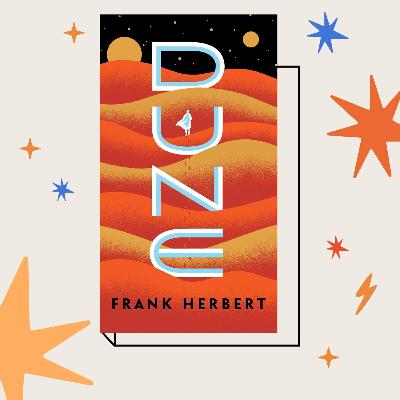





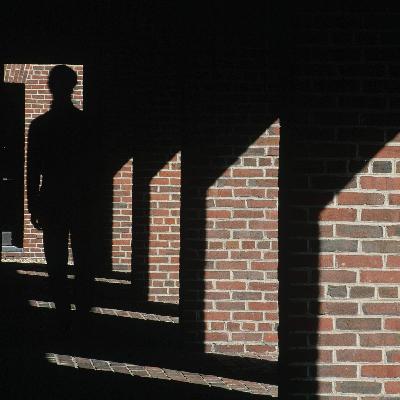
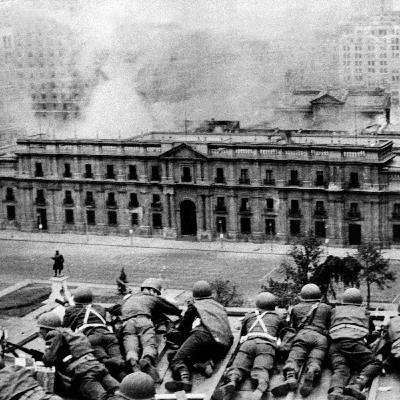




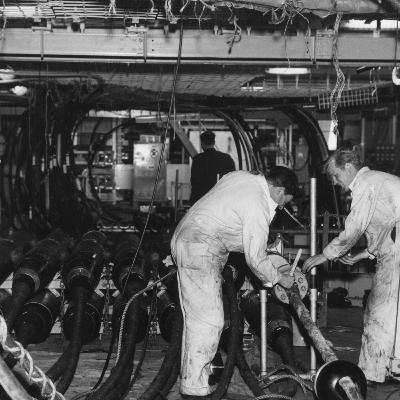


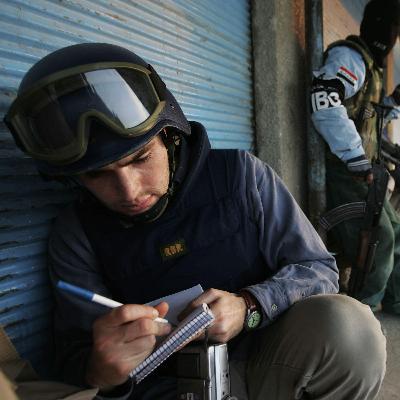

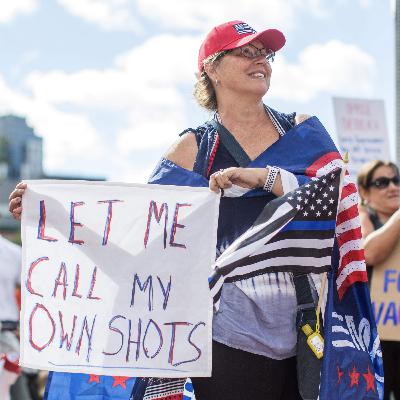
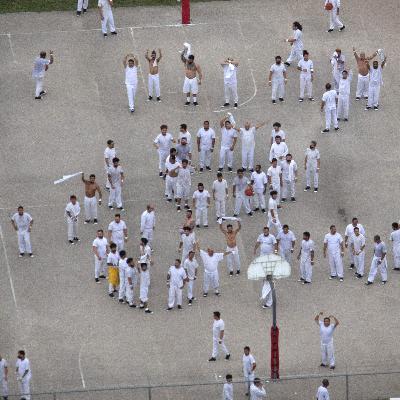



You are only able to cover the right-wing extremists of Israel well because Israel is an open democratic country. But the leaders of Hamas and other terrorist groups hide in the shadows. I wish you would also tell the history of the people behind the horrors inflicted by those who supposedly fight for Palestinian freedom, even though that'd be much more work.
Don't know why I didn't know about this NPR podcast, but I'm thankful that one of the other #NPR podcasts gave a preview of this episode. Based on the wide array of topics, there are lots of excellent episodes that I've just added to my queue.
I was looking for info on Qatar stopovers and found this super helpful. The details about the Qatar Transit Visa are explained well here: https://allaboutqatar.com/qatar-transit-visa/ .
I'm wondering what the point of even talking to that fascist is if you're not going to push back and contextualize his bs. Some liberal exercise in both sideism between democracy and fascism, between cruelty and humanity. I know and expect better from Throughline. This episode looks like executive meddling from NPR was involved.
thank you, so interesting!
just a wonderful podcast and NPR is my CBC American friend. we can't let you sink!
America needs Godzilla right now.
this podcast is bias and indoctrinated. beware who your podcasters are. who writes the narrative.
I teared up at this episode. The fact that she won.
skipping content. my download or is it at source?
I absolutely love how 'Throughline' dives deep into historical contexts to provide fresh perspectives on current events. The storytelling is both engaging and insightful, making complex historical events accessible and relevant. https://podcasters.spotify.com/pod/show/roden-john
I absolutely love how Throughline dives deep into history to connect the dots to our present. The way the hosts present complex topics in such a compelling and engaging manner makes every episode a must-listen. https://www.spreaker.com/episode/eco-friendly-packaging-in-the-food-industry--60716022
Huey Long died 9/10/35, not 9/8/36, as stated in this story
Flagrantly biased. You didn’t speak to a single anti Zionist, or include the antisemitism that fueled European support of the Zionist project. Really embarrassing episode for y’all
I saved this when it came out, now this is my second listen. Thank you!
Good attempt but lacks historical nuance and integrity. The intro fails to highlight the provocations and the role of the PLO in the start of the Lebanese civil war. Furthermore, the shows failed to mention that: - Hezbollah invaded Beirut on May 7, 2008 where weapons were turned inwards. - Hezbollah hampered the investigation into the Beirut Port Explosion
I'm 9 minutes in and waiting for the actual episode to begin, while Throughline and Radiolab hosts gush on and on and on about how fantastic they all are. Couldn't they have done that before recording the episode...maybe just a quick 2 minute intro? I realize you're trying to share audiences with each other, but I think anyone that can skip over this drivel will, like I finally did at the 6 minute mark.
ALL>FUL>MOVIES>LINK👉https://co.fastmovies.org
That song is incredible
This was nauseating.